‘Everyone pretends that everything is fine in game industry’
What is happening in game development and esports in Russia
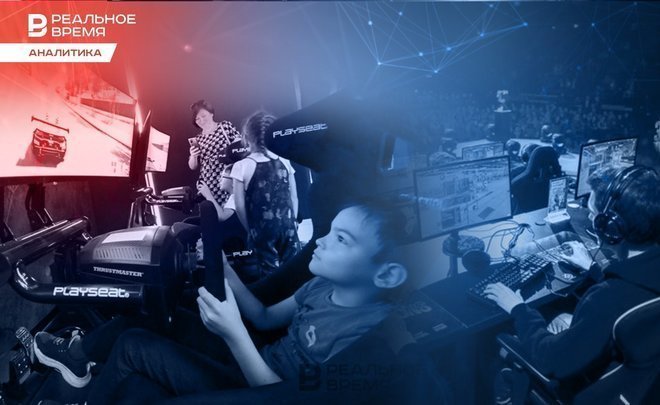
According to YooMoney analysts, from January to July 2023, the turnover of game platforms more than doubled compared to the same period in 2022. The number of payments also doubled, and there became by 72% more payers. The average check increased by 2% and amounted to 490 rubles. Besides, in August it became known that Russia prepared a strategy for the development of game industry until 2030, which will contribute to the development of domestic game development and esports. How gamedev lives in 2023 and whether it has been able to overcome the blow inflicted on it by sanctions — in the review of the analytical service of Realnoe Vremya.
Game industry continues to grow
According to YooMoney analysts, from January to July 2023, the turnover of game platforms more than doubled compared to the same period in 2022. The number of payments also doubled, and there became by 72% more payers. The average check increased by 2% and amounted to 490 rubles.
This summer, from June 1 to August 20, the number of purchases of gaming products increased by 12% compared to the spring (from March 10 to May 31). The turnover of game platforms increased by 10%, and there became by 8% more payers. The average check hardly changed and amounted to 645 rubles.
Most often, gamers pay for gaming goods with bank cards (68%). The second place among payment methods is occupied by SberPay (18%) — from January to July, the number of such payments increased by 92%. Another 2% of payments are made to YooMoney wallet.
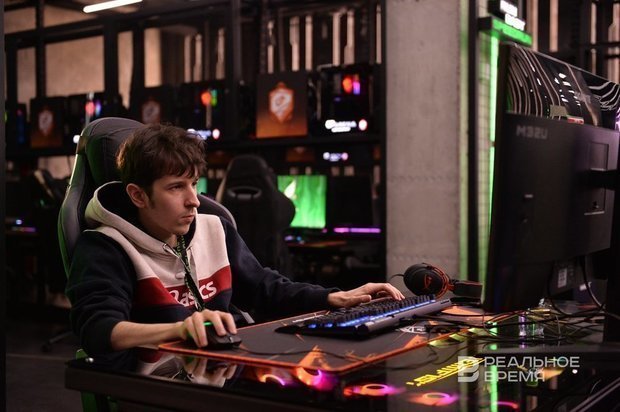
From gamers to sportsmen
Video games have long ceased to be just a way to spend time and have grown into a professional sport, and Russia has been the first in the world to officially recognise this, says Dmitry Smith, the president of the Russian Computer Sports Federation.
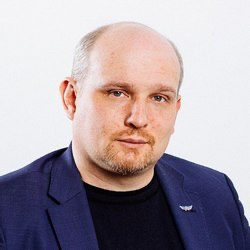
According to Smit, the total audience of broadcasts of the Russian FCS tournaments reaches 43 million people. “These are mostly men, but in recent years, the proportion of women has been gradually increasing," the president of the FCS of Russia notes.
The growth of interest is also confirmed by the data of the YooMoney survey. More than half of the respondents reported that they are interested in esports broadcasts. Of these, 41% periodically watch streams or read news, and 14% of respondents regularly follow broadcasts.
Among the respondents who follow the segment, the most popular genre is shooters (35%). Strategies are the second (20%), and MOBA genre is the third (14%). They are followed by sports simulators and fighting games — they received 9% and 8% of votes, respectively. Some users note that the genre is not important to them.
There are becoming also more esports tournaments and their participants, Dmitry Smit notes. Today, more than 500 thousand people participate in the tournaments of the FCS of Russia. Among the YooMoney respondents, 20% of users have already participated in esports events, another 1% is preparing for their first tournament. But the majority of respondents (56%) have not yet participated in tournaments.

New games are rarely bought
More than half of the survey participants (54%) play every day. Another 27% do it several times a week, the remaining 19% — a couple of times a month or even less. Most prefer to play on a PC — 65% of respondents chose this option. Mobile phones are in second place (15%), laptops are in third place (13%). Consoles are preferred by 5% of the survey participants, 1% play on tablets and cloud services.
Shooters also became the most popular genre — 33% of respondents voted for them. It is followed by RPGs (22%), simulators (16%), and strategies (12%). MOBA (7%), puzzles (7%) and fighting games (2%) turned out to be less popular. Counter-Strike is the leader among the favourite games (16%). Second place — Call of Duty (9%), third — Dota 2 (8%). But the famous Tanks turned out to be not so popular — World of Tanks was chosen by only 6% of respondents. The same amount called Minecraft.
Most of the survey participants (58%) buy new games once a year. Another 24% spend on games every two or three months, 13% — once a month, and 5% make purchases monthly.
The majority (64%) spends up to 1,000 rubles a month on games. Another 25% named amounts from 1 to 5 thousand rubles a month. Only 5% of respondents spend from 5 to 10 thousand rubles on games, the same amount is ready to give more than 10 thousand monthly.
Skins are in the lead among in-game purchases (34%), they are followed by a battle pass (30%). Only 8% of gamers report that they do not buy anything at all.
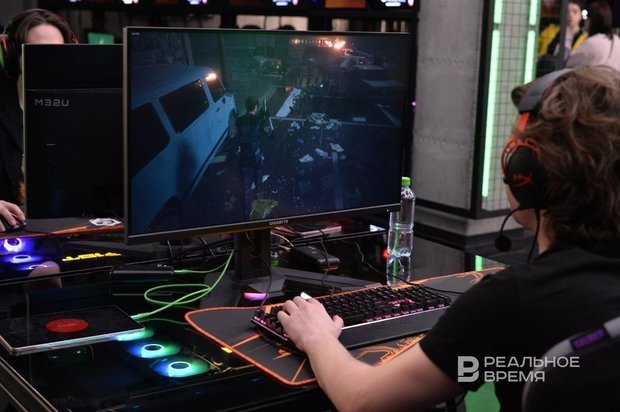
Gamedev continues to develop in Tatarstan
The press service of the Ministry of Digital Development of Public Administration, Information Technologies, and Communications of the Republic of Tatarstan told Realnoe Vremya that the gaming industry continues to develop. At the same time, it follows the course of training highly qualified specialists: “The emphasis is not only on indie studios, but also on the training of game designers, narrators," the press service of the department noted. “We see certain prospects, especially in the context of import substitution.”
A lot of support for domestic developers is provided within the framework of the Games of the Future. Also, the specialised event for developers Start The Game has been held in Tatarstan, and a game dev hackathon is planned. “The demand for high-quality gaming products remains high, as the industry constantly develops. The success of Atomic Heart game is another confirmation of this," the press service of the Ministry of Digital Development stressed.

“We are not welcomed in America, and we are not welcomed in Europe”
“For the Russian game industry market, disconnection from a number of external systems has become an incentive for development. Many gamers are switching to domestic online gaming and esports platforms, participation in the development of the segment is becoming an important business area of Russian IT companies. The growth of purchases indicates the demand for such products," says Dmitry Karmishin, the commercial director of YooMoney fintech company.

The cost of gaming hardware and consoles is also growing. “In the foreseeable future, we will see a drop in market volumes in unit terms — that is, in the number of players," he believes. “Now we are not seeing an increase in purchases, but an increase in the average price. And the fact that the industry has not been able to adapt to the new conditions is also obvious.”
“The main problem of game industry in Russia is that foreign markets are closed," the expert explains. “We are not welcomed in America, we are not welcomed in Europe. If you look at the sales of Atomic Heart, it is sold not as a Russian game. In Russia, we honour it as Russian, but initially the studio brought out all activities outside of Russia. This very well characterises the “Russianness” of this project at this stage.”
According to Murtazin, we can say that we are facing a very big threat to the segment that “was just getting on its feet, but did not have time to get up”: “State support will not help much here," he believes. “Someone demands subsidies from the state, some projects can even be created with this money. They may even be interesting, but the industry as such is out of the question at the moment," the analyst concluded.
One can forget about games as an art
Yan Shevchenko, the founder and CEO of GD Forge and Fair Games, is extremely restrained in assessing the situation in the Russian game development.
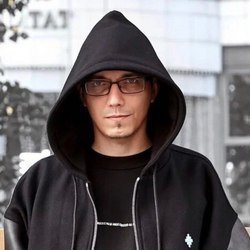
If we talk about switching to local platforms, then the economy will somehow struggle with products that are far from the concept of art, he believes. “Only in the games of f2p format, pulling money from players for “crystals” and getting hooked on a dopamine needle. One can forget about games as an art soon. There is no purchasing power, and without it, there will be no competitive quality," Shevchenko believes. “And the players will also be concerned about finding a scheme to circumvent sanctions to gain access to international products.”
In his opinion, those who have not left are still solving problems with temporary measures, waiting for developments and trying to reach a turning point.
There is no market for big games in Russia. “The success of Atomic Heart is certainly significant," agrees Yan. “However, to what extent is its developer now a Russian company and where are its main legal entities? Inside Russia, the economy will not agree for the game. The cost of production will not compete with the price for a copy and the number of potential sales. Especially when it's not about small mobile f2p games, but about large retail gaming projects.”
Therefore, none of the experts undertakes to give forecasts for 2024. “Now game studios are applying a model of crisis operational management. And the planning horizon is not even a year — if God grant, a month," admits Yan Shevchenko. “For example, we have a release of a large project on October 1. And now we don't understand at all what to expect from sales. This will be the input data for making further decisions.”